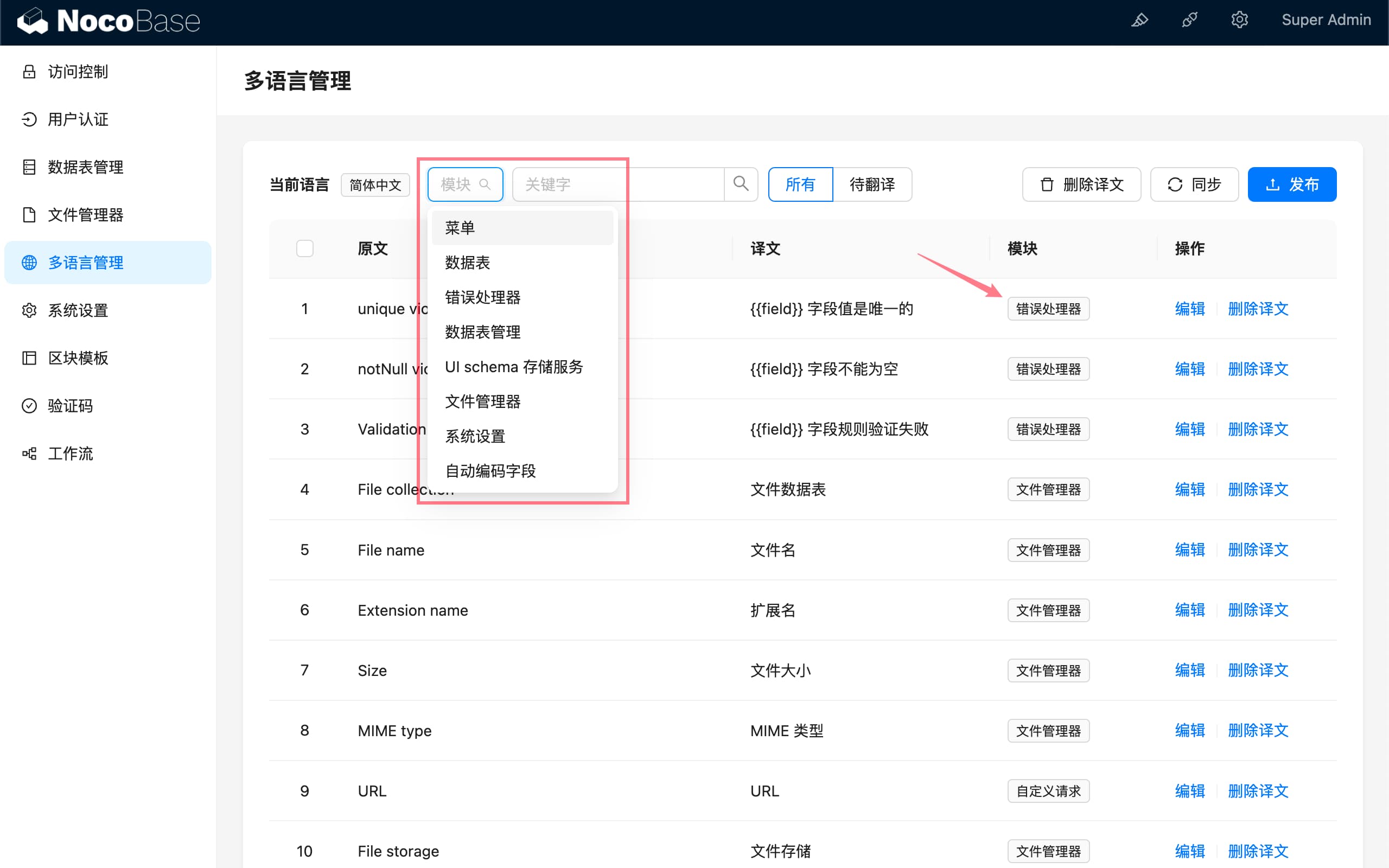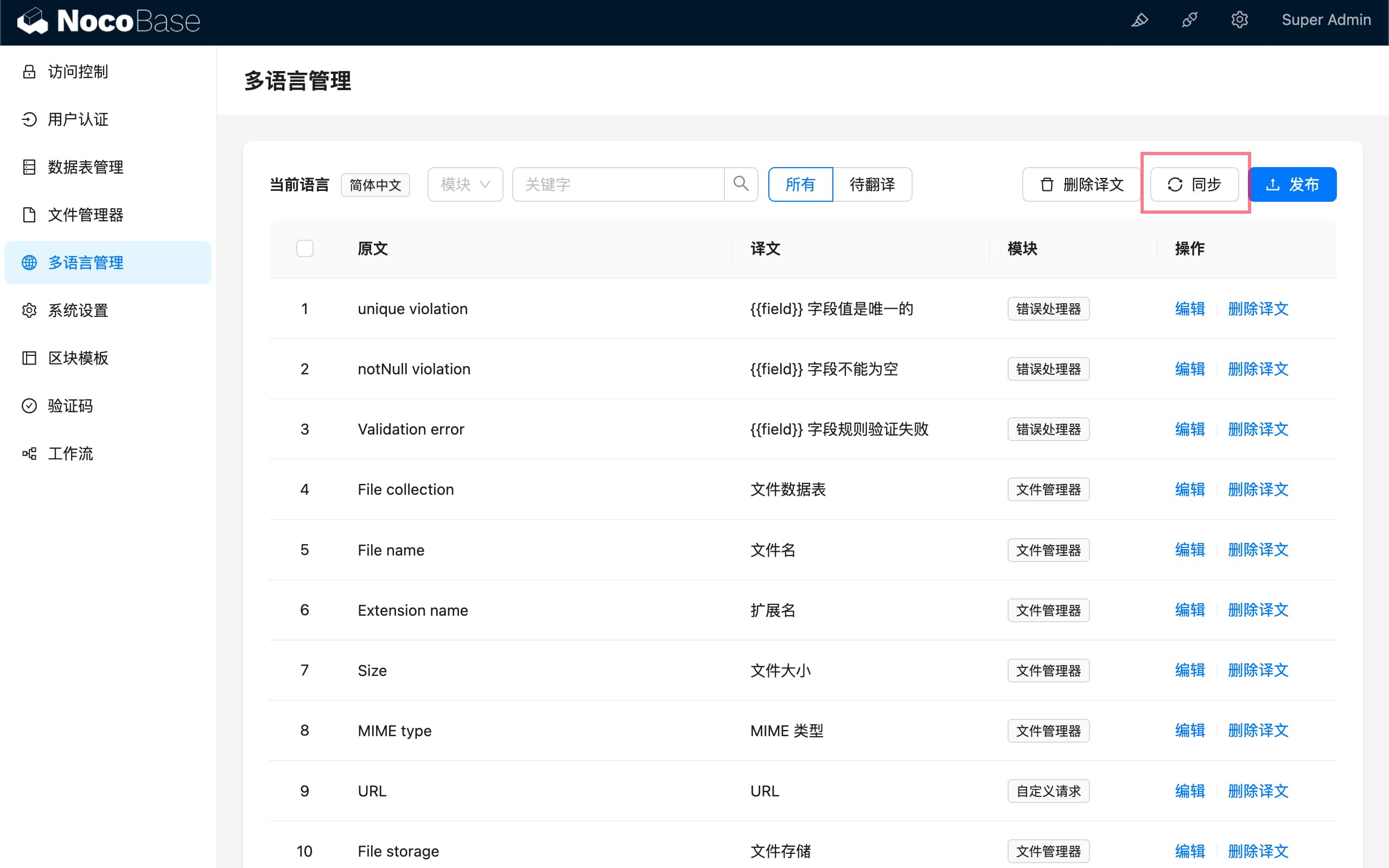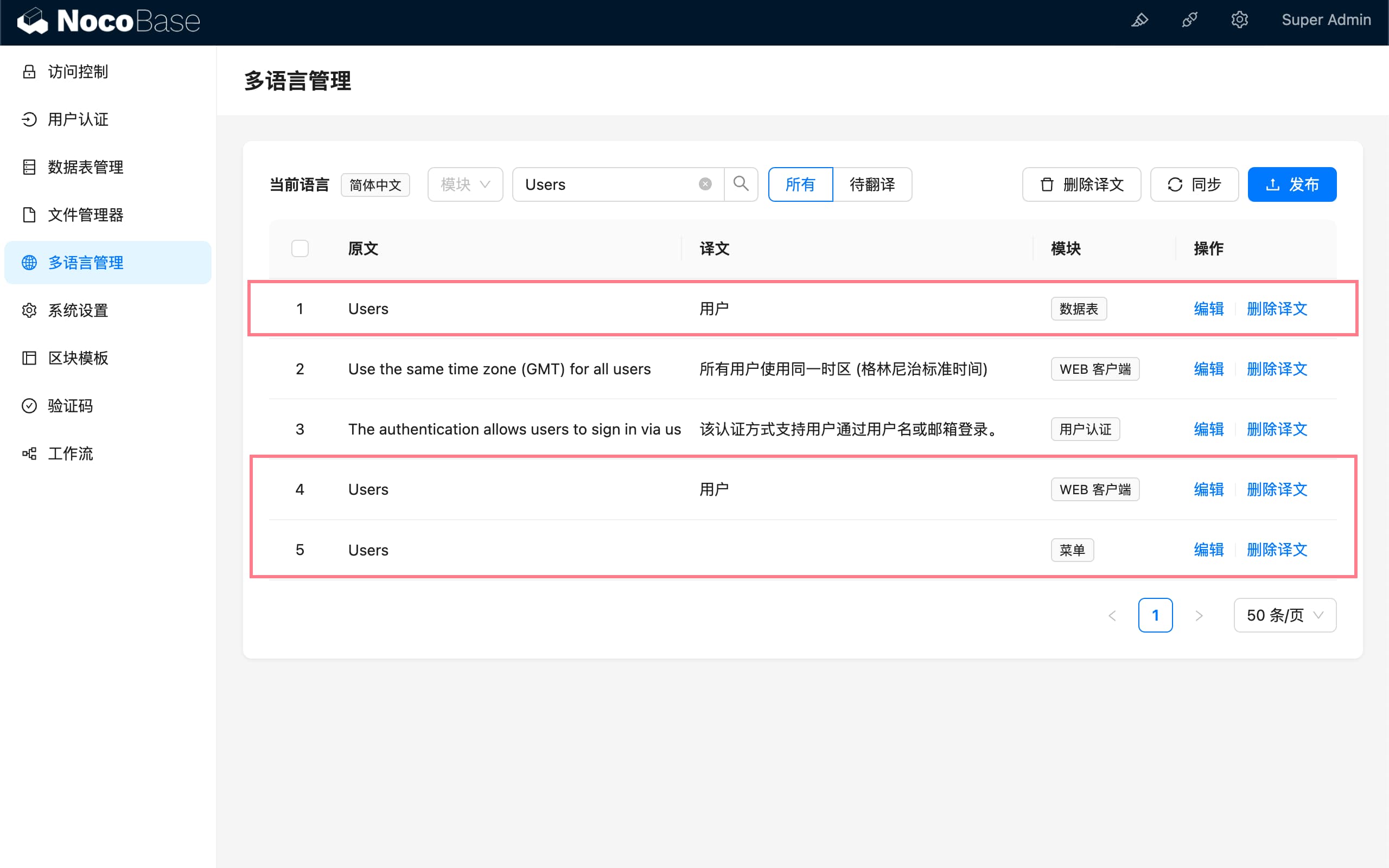Background
- The localization management plugin synchronizes original texts by placing them in the same namespace (module). When encountering identical texts in different plugins, it removes duplicates and preserves the translation found in
packages/core/client/src/localefor further use. - The NocoBase client creates an
i18ninstance with the optionfallbackNS: "client"(reference). Consequently, during plugin development, certain texts that already exist inpackages/core/client/src/localecan be omitted from the plugin’s locale files.
These two settings, however, present a issue. The same original texts can only be associated with one translation and can not differ across namespaces. For instance, if a user creates content with the same text as an existing translation, such as “Users” with the Chinese translation “用户,” it will be displayed as “用户” in the “zh-CN” environment. This happens even if the user prefers to show the original text rather than the translation.
Change
Translation texts are categorized based on their corresponding modules (menus, collections & fields, different plugins), with no deduplication. On the localization management page, texts can be filtered using a dropdown menu by selecting the corresponding module.

How to migrate
Follow the normal upgrade process to upgrade the system. Then switch to the corresponding language environment, and on the localization management page, synchronize translation texts by clicking the “Sync” button.

Breaking changes
Translation texts are no longer deduplicated
Duplicate texts across modules require separate translations.

Removed fallbackNS option from i18n instance
The i18n instance of client no longer includes the option fallbackNS: "client".
For plugin developers, if language files in a plugin omit some texts already present in the core client, it’s necessary to supplement them. If you still want to reuse content from packages/core/client/src/locale, pass the appropriate parameters when using it, for example:
import { useTranslation } from 'react-i18next';
export const NAMESPACE = 'localization-management';
export const useLocalTranslation = () => {
return useTranslation([NAMESPACE, 'client'], { nsMode: 'fallback' });
};